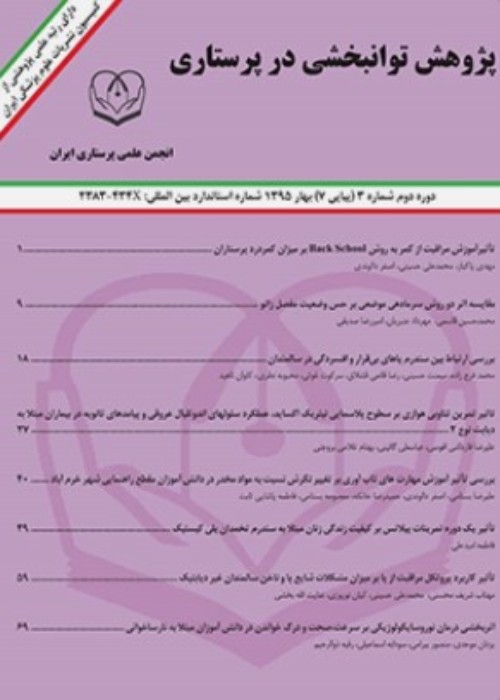Comparison of Perfectionism and Thought Control Strategies in Patients with Obsessive-Compulsive Disorder and Normal Individuals
Regarding the relatively high prevalence of obsessive-compulsive disorder and its cost-effectiveness, it is imperative that diagnosis and timely treatment are urgently needed. Over the past few decades, many studies have been conducted to identify psychological factors involved in the onset and continuation of this disorder. The current study aimed at comparing perfectionism and thought control strategies in patients with obsessive-compulsive disorder and normal individuals.
The research method was causal-comparative. The statistical population of the study included all obsessive-compulsive disorder patients referring to Tehran's health centers, during year 2017. Thirty patients (19 females and 11 males) with obsessive-compulsive disorder and 30 normal subjects were selected based on available sampling and matched according to age, gender, education, and marital status. To collect data, Tehran multi-dimensional perfectionism questionnaire and thought control questionnaire (Wells and Davis, 1994) were used. Data were analyzed using descriptive and inferential statistical methods, including multivariate analysis of variance analysis of the SPSS software version 20 at significance level of P < 0.05.
The results of multivariate analysis of variance showed that there was a significant difference between people with obsessive-compulsive disorder and normal individuals in the variables of perfectionism and thought control strategies, so that the mean scores of people with obsessive-compulsive disorder in self-centered perfectionism components, other and community-orientation was more than the normal group (P < 0.001). Also, in thought control strategies, attention deficit, attention, social control, punishment, and re-evaluation were significantly higher than the normal group (P < 0.001).
Based on the findings of this study, perfectionism and thought control strategies are two cognitive factors that may affect the symptoms of obsessive-compulsive disorder and exacerbate and persist the disorder, and therefore should be the focus of therapeutic interventions. Adjusting perfectionism and replacing adaptive coping strategies instead of maladaptive strategies can help control obsessive symptoms
- حق عضویت دریافتی صرف حمایت از نشریات عضو و نگهداری، تکمیل و توسعه مگیران میشود.
- پرداخت حق اشتراک و دانلود مقالات اجازه بازنشر آن در سایر رسانههای چاپی و دیجیتال را به کاربر نمیدهد.




